
In conjunction with our first Skift Forum Europe that concluded in London last week, we are debuting an annual feature we’re calling Tastemakers of European Travel.
These are the people in the Skift mold, defining and leading into the future of travel and the traveler experience across various parts of the European travel ecosystem.
The Skift European Tastemakers are a diverse group of hoteliers, designers, airline executives, tourism officials, startup founders, investors, technologists, mayors, restaurateurs, and more, defining how people travel and move throughout the European continent and beyond.
Why now? Even as the world is in the throes of a new wave of neo-isolationism, it is worth recognizing and celebrating the people who are pushing the boundaries of innovation in travel, the sector that is the most progressive expression of human curiosity. These are the people Skift looks up to and covers regularly, and the larger industry learns from them.
We aim to make this Tastemakers list a benchmark of what all of us aspire to in our executives and leaders in the travel and related sectors, in Europe and elsewhere in the world.
Let us know your feedback on this list, and any names we should consider for next year’s as well. Email us at tastemakers@skift.com.
Download Your Copy of Skift Tastemakers 2017 Magazine
Success!
Check your email for your free download of Tastemakers 2017 Magazine
Tastemakers
Hospitality
Cities
- Jürg Schmid, CEO, Switzerland Tourism
- Frans Van der Avert, CEO, Amsterdam Marketing
- Margrethe Vestager, European Commissioner of Competition
- Sadiq Khan, Mayor of London
- Toomas Hendrik Ilves, Former President of Estonia
- Ada Colau, Mayor of Barcelona
- Maria Balshaw, Director, Tate
- Elena Kountoura, Minister of Tourism, Greece
Technology
Retail and Restaurants
Q&As
Ólöf Ýrr Atladóttir
Director General, Icelandic Tourist Board

By focusing on the impact that tourism can have in Iceland, instead of solely the economic upside of increased visitation, Iceland is attempting to push forward with a vision that works for both native Icelanders and visitors alike. Here are some of Atladóttir’s thoughts on the changing landscape of European tourism.
Skift: How do you assess how the experience of European travelers has shifted in recent years, particularly the effect of increased tourism?
Atladóttir: Not ever ything has changed. Tourism has been on the rise and people are traveling for recreation and relaxation as never before. This means that in many instances we as travelers often still look for an experience we can recognize: a relaxing time off, a cultural city experience, a shopping and entertainment time out with fine food and wine, all at a good price. However, there is an easily discernable increased interest in experience-based traveling, in which seasoned travelers strive for singular experiences, based upon a perception of independent travel. Among these travelers, there is an increased awareness of sustainability issues and a more prominent demand for quality products and services.
Skift: How does a steep rise in tourism affect the experience of travelers, and how are you working to direct tourists in a sustainable manner?
Atladóttir: We have been fortunate. According to recent surveys, 95 percent of our foreign visitors say that the visit to Iceland met their expectations, say that they would like to visit again. Our visitors also name our hospitality as our second greatest strength — and we are grateful for that, because without a welcoming host nation, tourism will not go very far. It should be noted that the rise in tourism is taking place outside of the summer season — Iceland has been discovered as an exciting place to visit all year round. This opens up new opportunities for both visitors and hosts.
Skift: What trends are destinations paying attention to in order to ensure travelers have a great experience without impacting local residents and the local culture?
Atladóttir: Don’t only ask the question of what destinations do to attract more tourists — also ask: “What impact do we want tourism to have upon us?” The understanding of the impact tourism has upon societies, the utilization of public goods and services, and the objectification of a multitude of cultural and natural phenomena that has great emotional value to residents have to be addressed. These things need to be in harmony, as visitors will perceive an imbalance in these matters in a multitude of ways. Without harmony, there can be no assurance of quality and enjoyment. At the same time we need to ensure that residents understand and experience the positive effects that tourism and an increase in visitors can have on their lives, increasing services in rural areas, enriching interactions with other people, while perceiving that government and industry are working in a manner aimed at counteracting the possible negative effects of tourism.
Tastemakers: Hospitality

Thibault Viort
Chief Disruption and Growth Officer, AccorHotels
Long before he began working in hospitality in April 2016 as the first chief disruption and growth officer of AccorHotels, Viort developed a reputation all his own as both a disruptor and innovator. After graduating from acclaimed French engineering school EPITA, Viort launched his first business at age 22, later creating the very first online game — Is Cool Entertainment — for Facebook back in 2008. In 2005, seizing on the growth of big data, he created Ysance, a people-based marketing platform. In 2009, he created mobile developer Wipolo (which was later acquired by Accor) and Cityvox (which was later acquired by Yelp). Throughout his career, Viort has been passionate about sharing his experiences as an entrepreneur, teaching classes at the Ecole Polytechnique and as a tutor and mentor for a number of startups, including Openclassrooms and Codingames. Of his appointment, AccorHotels CEO Sebastien Bazin said, “His enthusiasm, his experience as a passionate entrepreneur as much as his willingness to share and offer a fresh look will help us feed the Group’s activity and generate new approaches to our businesses.”

Kit Kemp
Co-Owner and Design Director, Firmdale Hotels
Adhering to the belief that “hotels should be living things, not stuffy institutions,” interior designer Kemp has been a pioneer of London’s boutique hotel scene for more than 30 years. Today, Firmdale Hotels, which was started by Kemp and her husband Tim, boasts more than a dozen hotel and apartment properties and the company’s newest hotel, The Whitby, recently opened in New York City in February. Kemp’s unique sense of style, colorful use of prints and patterns, as well as her keen eye for interior design set a gold standard for contemporary English hospitality. In 2008, she was named the Andrew Martin International Interior Designer of the Year, among many other awards. Firmdale Hotels also received the Queen’s Award for Enterprise, annual awards that recognize excellence in international trade, in 2000, 2006, and 2009. In 2015, Kemp also published a book, Every Room Tells A Story, detailing the power of design and her own experiences in the interior design business.
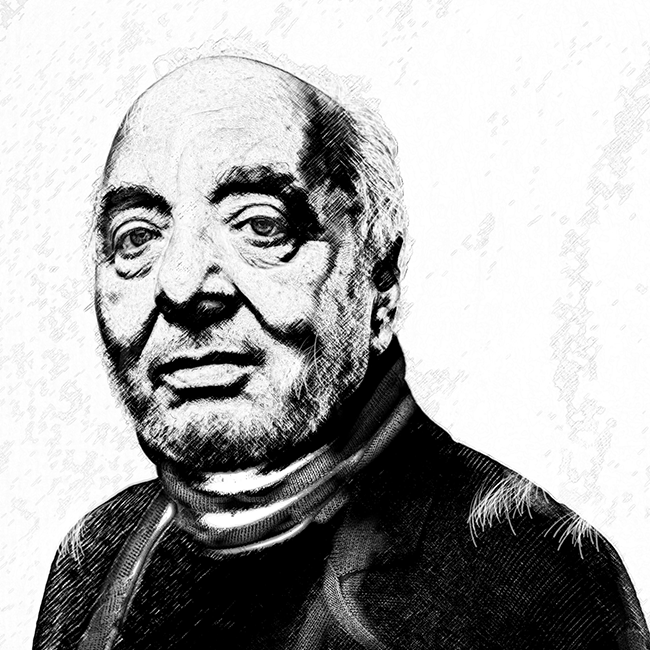
Rattan Chadha
Chairman and Co-Founder, citizenM
Long before he launched citizenM Hotels in 2007, Chadha was known for something else: being the former owner and founder of global fashion company Mexx. Chadha was born in India but moved to the Netherlands in 1971, where he soon began his career in the fashion industry. After selling Mexx to Liz Claiborne in 2006, he and citizenM COO Michael Levie embarked on creating a new type of hotel. The result was the first citizenM hotel at Amsterdam’s Schiphol Airport and today, that portfolio has grown to a total of six cities and counting. The brand caters to “mobile citizens” — frequent travelers who spend their travels exploring and spending time outside their rooms. For that reason, the hotel’s guestrooms are small by comparison to others, but also luxurious and personalized, defining a new category of “affordable luxury” hotels. Today, Chadha serves as chairman of citizenM Hotels, and he also serves as the founder and president of KRC Capital.

Debbie Wosskow
Founder and CEO, Love Home Swap
Serial entrepreneur Wosskow was inspired to launch home exchange platform Love Home Swap in 2011 after watching the film The Holiday, and today, the UK-based company is thriving with more than 100,000 homes in 140 countries worldwide. Wosskow’s entrepreneurial drive, digital expertise, and desire to empower female business owners is what sets her apart from many of her peers. She launched her first company, Mantra, a marketing consulting firm, when she was only 25, and sold it to Loewy Group in 2009. In addition to leading Love Home Swap, Wosskow also co-founded and serves as chairperson of AllBright, a UK funding platform that supports and helps finance female-led businesses. As an investor, she’s also backed a number of female-owned businesses, including style service marketplace ShareStyle and event planning tech company TAP. She also serves as chairman of government-backed Sharing Economy UK, a trade body for the industry, and sits on the Mayor of London’s Business Advisory Board.
Tastemakers: Technology

Nicolas Brusson
Co-Founder and CEO, BlaBlaCar
Europe took so quickly to BlaBlaCar — the Paris-based, long-distance carpooling service — that it can be tough to get perspective on the momentous shift in behavior it produced. A decade ago when Brusson and his two co-founders launched the booking platform, critics told them the idea was glorified hitchhiking and faced too many roadblocks to succeed. But ordinar y folks got it and persuaded friends to try it. Today 12 million people use BlaBlaCar to arrange rides every three months, on average. Roughly a tenth of those trips is for inter-city or cross-border journeys in 22 countries. Making carpooling convenient has had a side effect. Many travelers have changed their expectations. Rather than dreading the idea, they now look forward to conversing in-depth with locals, an intrinsic part of car-sharing that can make “getting there” part of the fun. Brusson, who moved from COO to CEO last year, is a driver of change in French culture, too. He and his team raised $310 million — their success is revving up the ambitions of other entrepreneurs to hop into unfamiliar startups and build other, better services for travelers.

Naren Shaam
Founder and CEO, GoEuro
After wrapping up a Harvard MBA, Bangalore-born Shaam backpacked around Europe. He noticed that he spent too much of his time booking tickets at stations. He wanted to transform the booking of rail, coach bus, and airfare into a one-stop, online affair. In 2012, after a stint in financial services, Shaam founded GoEuro. Since then, the startup has raised about $146 million. More than 10 million people a month use it to compare train, bus, rail, and car rental options in a dozen languages. No other European search site yet connects to as many national rail, bus, and other transportations software systems — more than 500 suppliers, across 12 countries — as GoEuro. That makes GoEuro the leading European exponent of the fast-developing sector called multi-modal travel search, bringing the so-called “last mile” of travel onto the information superhighway. The 34-year-old Shaam’s work may someday mean Europeans will take it for granted that they can book door-to-door trips on their smartphones. Forget queuing at stations.
Shaam has also become an industry role model for smart hiring practices. He insists on hiring diversely — with more than 200 workers of 40 nationalities, and women making up 46 percent of the staff. That practice is having ripple effects on how hiring happens elsewhere in Europe’s often parochial, male-dominated tech scenes.
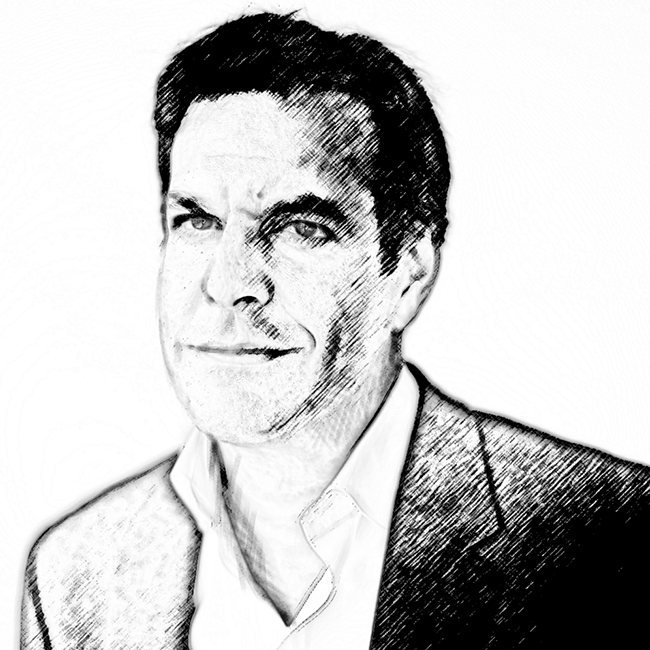
Brent Hoberman
Co-Founder and Chairman, Founders Factory
In 1998, when Hoberman co-founded travel booking site lastminute.com on Portobello Road in London, he was a 28-year-old, first-time entrepreneur. He made every mistake in the book. Despite being a novice, Hoberman and his team took the company to profit, to gross bookings of more than $2 billion, and to a $1.1 billion sale in 2005 to technology company Sabre. Hoping to help entrepreneurs skip the (avoidable) mistakes he made, Hoberman and another of his lastminute.com co-founders, Henry Lane Fox, invented Founders Factory, a corporate-backed mentorship program for entrepreneurs. In the next five years, the London operation aims to help more than 200 early-stage tech businesses across five sectors, including travel.
Backed by low-cost airline easyJet, Founders Factory will build two travel tech companies a year within its incubator and provide bespoke support to five existing travel startups a year within its accelerator. In February, it announced that the first travel startups to go through the six-month accelerator are FLIO, a mobile app for navigating airports worldwide, and Lucky Trip, a budget-based itinerary recommendation service. By helping next-wave startups, Hoberman raises the metabolism of the travel industry overall.

Azmat Yusuf
Co-Founder and CEO, Citymapper
When ex-Google employee Yusuf built Citymapper, a journey-planning app for cities, he overcame the odds by finding a gap in the market still unsolved by the technology giants. Citymapper is more than a map with some transit data mixed in. Yusuf — an engineer with an MBA from INSEAD — insisted on building a mobile tool that gets the details right. When there’s a transit strike, Citymapper can tell you whether it’s wiser to hop into an Uber or a subway car. When the weather’s wet, it knows the driest route to take. When you arrive at an unfamiliar subway station, it points you to the best exit. No wonder millions rely on the app to navigate 38 cities worldwide. Since Pakistan-born Yusuf began his business in London in 2010, he became skilled at raising money. When Italian entrepreneur Pietro Bezza rented his place on Airbnb, Yusuf made a contact who eventually became an investor. Since then, Citymapper received $50 million from venture capital firms. This year, Yusuf may sell his company’s data tools to transit operators, which could have the knock-on effect of improving journeys for an even broader swathe of travelers. Expect Google and other tech giants to track the route this entrepreneur sets.
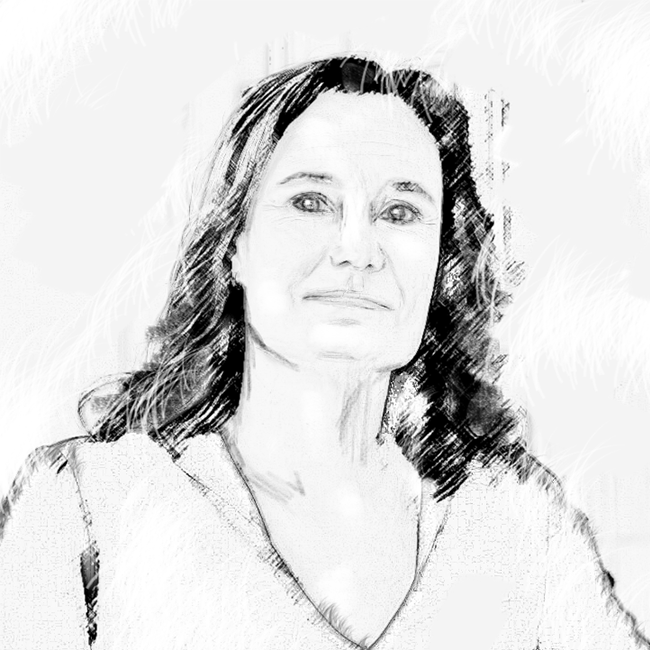
Gillian Tans
CEO, Booking.com
Tans joined Booking.com in the early days, 2002, and today serves as CEO, having been promoted to the top position in April 2016. Tans worked her way up in the organization and served since 2011 as president and chief operating officer. As CEO of Booking.com, the largest unit within the Priceline Group, Tans oversees operations of Booking.com’s business unit as well as more than 13,000 employees in more than 224 countries. Booking.com’s prime focus is selling hotel rooms and lodging was Tans’ early educational and career focus. Tans served in various product manager and marketing positions at Golden Tulip Worldwide from 1998 to 2002 and earlier graduated from the Hotel Management School in Middleburg, the Netherlands. Tans presided over numerous changes at Booking.com, which is the world’s largest accommodations site, including the advent of mobile and the company’s foray into the business-to-business side of hotel services. When asked to reveal any headline- grabbing news at Booking.com, Tans jokes that it’s a “boring” company — people just keep executing their jobs and winning.

Rolf Schrömgens
CEO, Trivago
Schrömgens is a co-founder and the CEO of Trivago, a Germany-based hotel metasearch site that debuted as a public company on Nasdaq in New York in December 2016. The company also refers to him as the managing director “for product, people, and culture.” Schrömgens served as a managing director of Trivago since 2005 when he and two graduate school friends came up with the idea for the company. Initially they learned how to be programmers and built most of the software themselves. Prior to his Trivago experience, Schrömgens founded consumer website Ciao. com in Munich and served as vice president, product and strategy from 1999 to 2001. He graduated from the Leipzig Graduate School of Management with a management diploma in 2000. Expedia took a controlling stake in Trivago in 2013. Schrömgens strongly believes that hotel search, or consumers’ quest for the “ideal hotel,” is a problem yet to be solved. Although Trivago might be best known in the travel industry for its mammoth marketing efforts, its tech teams are hunkered down solving the hotel search problem.

Paddy Cosgrave
Founder, Web Summit
As the European headquarters for Google, Facebook, Airbnb, and others, Dublin, Ireland has been on the forefront of tech on the continent. You can also credit Paddy Cosgrave and his seven-year old Web Summit gathering for promoting the city’s startup culture abroad. Founded in 2010, Web Summit grew rapidly from a 400-person event dominated by Irish startups to the 2015 event which saw 30,000 people gather, 90% of those from abroad. Cosgrave decamped Dublin for Lisbon for the 2016 event in a three-year agreement that caused consternation at home, but signalled that Lisbon was a meetings-friendly destination ready to take advantage of its infrastructure and lower costs to attract big events. Cosgrave’s organization has expanded beyond the single event as well, adding Collision in the U.S., Rise in Hong Kong, and Surge in India. While two of the expansion events move locations annually, it remains to be seen if Web Summit will move on from Lisbon after its three year agreement. Either way Cosgrave has already demonstrated that destinations and events can’t take each other for granted.
Q&As
Erik Friemuth
CMO, TUI Group

Part of the responsibility for managing this change lies at the feet of Erik Friemuth who sits on the company’s group executive committee as chief marketing officer. Ahead of his appearance at Skift Forum Europe on April 4 in London, Skift caught up with him to discuss the challenges he faces.
Skift: You’re currently engaged in moving from a multi-brand to a single brand, how is this going?
Friemuth: The rebrand that we’re currently doing is based on our belief that we would like to develop a global TUI brand that helps us to market ourselves more consistently than we did previously. The main thing is the customer experience. There are lots of things or reasons why you want a single brand, but a consistent customer experience for our customers across our various markets is the main reason.
Skift: That must present a lot of challenges to TUI. The Netherlands, Germany, and the Nordics are all subtly different markets. How have you gone about the change and how has it been received so far?
Friemuth: It’s been very successful so far. We rebranded the Netherlands last year. As a result, we’ve seen the highest unaided awareness for TUI in the Netherlands ever measured. Even if you take into account the former brand, which was in the market 80 years. And we see younger target groups joining TUI, which is one of the main secondary aims that we have, to modernise and broaden the brand and to make the brand popular in younger target groups.
This year we’re currently doing the four Nordic markets as well as Belgium. And again we see similar patterns so it helps us to approach the younger target groups and helps us to market ourselves better. In some cases we even grow market share. The UK is due for this year together with Ireland.
Skift: You’ve recently moved into the content space with website travel.me. What was the thinking behind this and how do you see it growing?
Friemuth: Social media is very strong and with our product, travel, we have fantastic content that we’d like to share. Travel.me is our content hub, which we then can use in many channels and across many territories.
Tastemakers: Cities
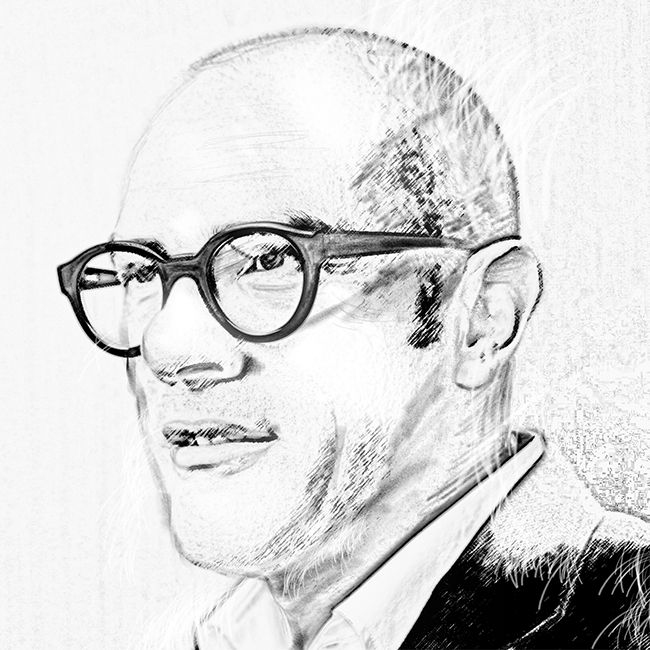
Jürg Schmid
CEO, Switzerland Tourism
Schmid became CEO of Switzerland Tourism in 1999. Before entering destination marketing, Schmid spent six years at Oracle Corporation, the world’s second-largest software company. Schmid’s time at Oracle included the post of regional sales and marketing director and he was responsible for the markets of North, Central, and Eastern Europe; the Middle East; and Africa. Prior to joining Oracle, Schmid laid the foundation for his career at Hewlett- Packard and Bank Vontobel.
In his role at Switzerland Tourism, Schmid oversees 240 employees at the organization’s headquarters in Zurich and in 27 offices around the world. During his tenure at the organization, Schmid’s accomplishments include a content platform on National Geographic Traveler’s website, strong U.S. visitation increases during the past six years, and using his marketing expertise to convince many travelers of Switzerland’s affordability despite a strong Swiss Franc. Schmid has a degree in economics and marketing from the Zurich University of Applied Sciences.

Frans Van der Avert
CEO, Amsterdam Marketing
Van der Avert has served as CEO of Amsterdam Marketing since Januar y 2013. As one of Europe’s leading tech hubs and centers for arts and culture, Amsterdam is battling the effects of overtourism and overcrowding. With a population of about 850,000 and 17 million visitors in 2016, Amsterdam Marketing, the city’s destination marketing organization, is leading the charge to grow tourism while strategizing how to keep Amsterdam sustainable for locals and tourists in the long term.
Van der Avert served as director of communication, education and marketing for exhibition centers De Nieuwe Kerk and Hermitage Amsterdam, and was responsible for marketing the launch of the new Hermitage Museum, which opened in June 2009. He was awarded the title of Communication Person of the Year by the Dutch Association of Communication Professionals for his work on marketing the launch of the Hermitage Museum. Van der Avert received a degree in museum studies from Reinwardt Academy of Museum Management and is a member of several different boards and advisory committees including the Dutch Museum Association.

Margrethe Vestager
European Commissioner of Competition
Following a long career in the Danish government, Vestager currently serves as the European Union’s European commissioner of competition. Since her confirmation in October 2014, Vestager has most recently pursued three antitrust charges against Google and Alphabet for anticom- petitive practices. Google has been charged with diverting traffic to its own comparison shopping services, in addition to its online search service and Android app store, instead of similar competitors on its Android mobile platform. Google has denied the charges, stating that the Android ecosystem has enhanced competition, not limited it.
She has also launched tax investigations into companies including Apple, Starbucks, Fiat, and Amazon. Her January 2015 verdict regarding Cyprus Airlines required the company to pay back 65 million euros in illegal state aid it received during an earlier restructuring. Vestager has also launched an investigation into Russian gas giant Gazprom, alleging the company has placed artificial barriers to trade in European countries.

Sadiq Khan
Mayor of London
Khan took office as mayor of London in May 2016 following a decade serving as an MP in the UK parliament. Khan is the first Muslim to be named mayor of a major Western city. Khan’s big win in the 2015 mayoral election helped give him the largest personal mandate of any politician in UK history.
Originally hailing from the Tooting district of South London, Khan is a trained solicitor and has experienced a successful career as a Labour party politician. He was first elected as an MP in Tooting in 2005, at age 24, and later served in posts as minister of state for communities and shadow state secretary for transport. During his tenure as mayor, Khan has worked to make public transit more affordable in London and supported the expansion of London City Airport and Gatwick Airport while opposing expansion at Heathrow Airport.

Toomas Hendrik Ilves
Former President of Estonia
As the fourth president of Estonia, serving from 2006 to 2016, Ilves is most well-known for shepherding Estonia’s digital infrastructure to world-class status. The small nation of 1.3 million citizens is ranked among the most innovative in Europe, leading the international community to dub the country “e-Estonia.” Ilves helped revolutionize the Estonian economy by introducing new digital efficiencies in many areas. All government documents and systems are completely digital, including a streamlined tax system and online voting. The country also completely digitized medical records nationwide and used digital tools to expedite border crossings.
Born in Estonia but raised in New Jersey, Ilves served two terms as president. He served twice as Estonia’s foreign minister and was elected as a member of the European Parliament in 2004. He is currently a Bernard and Susan Liautaud Visiting Fellow at the Center for International Security and Cooperation in the Freeman Spogli Institute for International Studies at Stanford University.
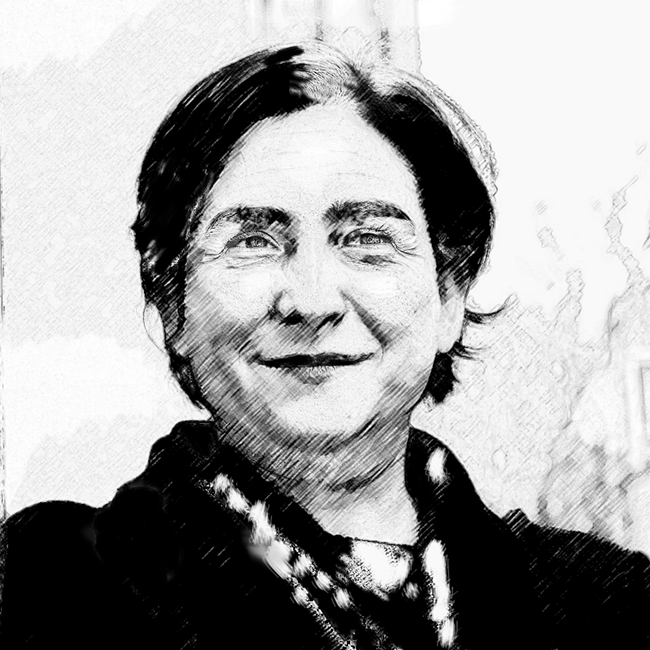
Ada Colau
Mayor of Barcelona
Known as one of the most radical and progressive mayors in the world, Colau has led the city of Barcelona since 2015 as a part of the movement known in Spain as la nueva política — the new politics. Colau got her start in activism by standing up to big money interests and conservative government officials in Spain as part of Plataforma de Afectados por la Hipoteca, a group founded in 2009 to protest evictions and the largesse of big banks following the 2008 financial crisis. She acted as the group’s spokesperson until 2014. She became a national icon in Spain for calling the deputy general secretary of the Spanish Banking Association a criminal, and refusing to retract her statement, during a hearing on the Spanish foreclosure crisis.
As Barcelona mayor, Colau has had to deal with the ramifications of overtourism across the city, which is the third most popular tourist destination in the world. This led the city to put a cap on the number of hotels that can be built and Airbnb rooms that can be rented out. The goal is to push new hotels out into the suburbs and help central Barcelona retain its identity.

Maria Balshaw
Director, Tate
In what seems like a natural fit, Balshaw will become the first female director of the Tate group, a group of British art museums with more than eight million annual visitors that includes London’s Tate Modern. Balshaw is expected to take over the post on June 1, 2017 and for the past decade has been the director of the Whitworth Art Gallery in Manchester, England. Under Balshaw’s leadership, the Whitworth Gallery completed a $23 million expansion in 2015 that doubled the amount of space open to visitors.
Balshaw has said that she saw Whitworth’s expansion as part of a mission to change international perceptions of the city of Manchester. The project also kept sustainability central as Whitworth is internationally known for its low-energy technology. Balshaw has also served as the director of Manchester City Galleries since 2011 and was awarded a CBE in the Queen’s Birthday Honours for services to the arts in June 2015. She has published numerous books and essays on African-American urban culture, gender, and visuality.

Elena Kountoura
Minister of Tourism, Greece
Greece’s image as an international tourist destination took a bit of a battering in recent years. Images of people queueing to get cash out of ATMs in the midst of its financial crisis in 2015 gave the impression that the country was on the brink of economic collapse. Further problems were caused by the arrival of thousands of refugees on islands popular with international holidaymakers. It’s therefore a testament to Greece’s enduring appeal that it hasn’t fallen off the map. Part of the reason for the country’s continuing success in the face of adversity is the work done by successive tourism ministers. The current holder is Kountoura, a former model and athlete, who took on the job in September 2015. Kountoura continues to push Greece’s transition from a low-cost beach destination to something more well-rounded with a focus on food and culture. Geo-political problems in nearby Turkey as well in Egypt and Tunisia have no doubt aided Greece’s renewed popularity, as have significant investments from tour operators such as Thomas Cook, which recently reported that the country was its number one performing destination for summer 2017.
Tastemakers: Retail and Restaurants

Afroditi Krassa
Founding Director, AfroditiKrassa
In many ways the hotel sector lags behind other parts of the hospitality industry. It wasn’t until recently that owners and operators realized that if they made their properties attractive to everyone, not just their guests, they could entice more people to use their facilities. London-based designer Krassa helped usher in this new era of destination hotels. Krassa was born in London but moved to Greece as a child. She returned to the UK intent on becoming a designer and studied at the influential art school Central Saint Martins. She founded her eponymous agency in 2002 and since then worked with clients across the wider hospitality space. Restaurants like Eat and Itsu turned to her for advice on brand and design, but speaking at Skift’s World Travel Market Mini-Forum, Krassa revealed that up until recently none of her company’s clients were hoteliers. This has now changed with, among others, Hilton coming to the agency for help. As she said at WTM: “There’s been a massive revolution in the last 20 years within the restaurant industry, and suddenly the rest of the hospitality industry wants a piece of it.”

Roger Wade
Chief Executive, Boxpark
After years of decline, the retail industry is making something of a comeback. That’s not to say we’re going back to what high streets and shopping malls used to be like — rather companies are looking for new and innovative ways to showcase their physical products. Even an internet giant like Amazon sees the benefit of people being able to touch and feel before they buy. Entrepreneur Wade found his own way to bridge the gap between the old and the new. In 2011 he opened Boxpark in London’s hipster capital Shoreditch. The individual units are made entirely from refitted shipping containers with established companies mixing with independents. The flexible nature of leases also helped attract a wide range of brands, as has the determination to entice people with events and longer opening hours than traditional stores. Wade, who founded the clothing company Boxfresh, opened up his second venue in Croydon at the end of last year and there are plans for more developments in the future. “You need to be able to touch and feel the product to properly engage with it,” he said in a 2015 interview.

Udo Schloemer
CEO, Factory Berlin
The UK’s impending exit from the European Union is going to create winners as well as losers. Those who are looking to capitalize on any changes include capital cities across Europe hoping to attract the next generation of entrepreneurs. At the moment, London is still the leader of the startup scene, but whether this lasts is a question only Prime Minister Theresa May can answer. The Brexit vote was partially built on anti-immigrant sentiments and many of the British capital’s most successful businesses either need highly- skilled workers from across the continent or were started by immigrants. All this means that places like Paris, Amsterdam, and Berlin are likely to grow in popularity. Schloemer will be hoping this is the case and he is certainly ambitious. In a 2015 interview he said he wanted to make the German city a European Silicon Valley. Factory has the significant advantage of having Google as a partner and has been able to attract the likes of Soundcloud, Twitter, and Uber who work alongside nascent businesses. A relatively low cost of living alongside a thriving cultural tradition has already made Berlin popular with entrepreneurs. Should London and the rest of the UK decide to close themselves off from the rest of Europe, then this will only continue.

Shamil and Kavi Thakrar
Co-Founders, Dishoom
Shamil and Kavi Thakrar are the fast-casual kings of the Irani cafés of colonial-era Bombay that took Brits by storm. They founded Dishoom in 2010, opening their first site in London’s Covent Garden, followed by Shoreditch, Kingly Street in Soho, and then King’s Cross (their Edinburgh location opened in December). The Dishoom co-founders are at the forefront of an international trend in concept-rich, counter service restaurants that give guests an aspirationally compelling experience at a low-key price point. They brought the concept to life through furniture they sourced in Mumbai and local touches unique to each location (the Kingly Street location takes cues from the swinging sixties, for instance, with its own record — Slip Disc — named after a rock club in Mumbai). Winners of Best Small Group in the 2016 edition of The Good Food Guide, this family of restaurateurs won praise for everything from breakfast bacon naan (nothing says hungry British hipsters like those three words) to friendly staff and an on-point authentic menu. In the age of the Shake Shack IPO, the do-one-thing-and- do-it-well approach will undoubtedly serve well the growth of their booming new group of restaurants.

Jean Michel Petit and Camille Rumani
Co-Founders, VizEat
Take the supper club, marry it with Airbnb, and you get VizEat, the communal dinner party website launched in France in 2014 by Petit and Rumani. Avid international travelers, Petit and Rumani are also cousins and former venture capital firm directors who tested the idea out on friends in Paris two years ago. Built on the simple premise that the ultimate authentic experience of a place is to be cooked for by a local in their home, bringing the sharing economy to dinner has been of interest to numerous startups around the world, but Petit and Rumani seem to have cracked the proverbial nut here — VizEat now boasts more than 100,000 members and 20,000 hosts in 110 countries. While others have attempted, for example in San Francisco, Apple selected VizEat as one of the top three apps of 2016 and partners closely with major players in the tourism ecosystem. Look who’s coming to dinner.

William Shu
Founder, Deliveroo
From Morgan Stanley investment banker to CEO of $475 million-backed delivery startup Deliveroo, American Shu was no stranger to late-night ordering. So, it follows naturally that the Connecticut native’s business prowess side-by-side an intimate familiarity with grabbing dinner-al-desko (thanks to a long banking career) led to a company whose short three years have already proven a rocket ship to success. Deliveroo was the first to introduce takeaway delivery from restaurants you actually wanted to eat from in the UK, the likes of GrubHub or Caviar, and has now spread to 84 other cities around the globe. As Shu shared on the stage at Disrupt London in December, “We started with two restaurants in Chelsea with two drivers — I was the first driver. Now it’s not about using us twice a month, it’s about using it every single day. Your best restaurant in your local neighborhood is here in less than half an hour.”
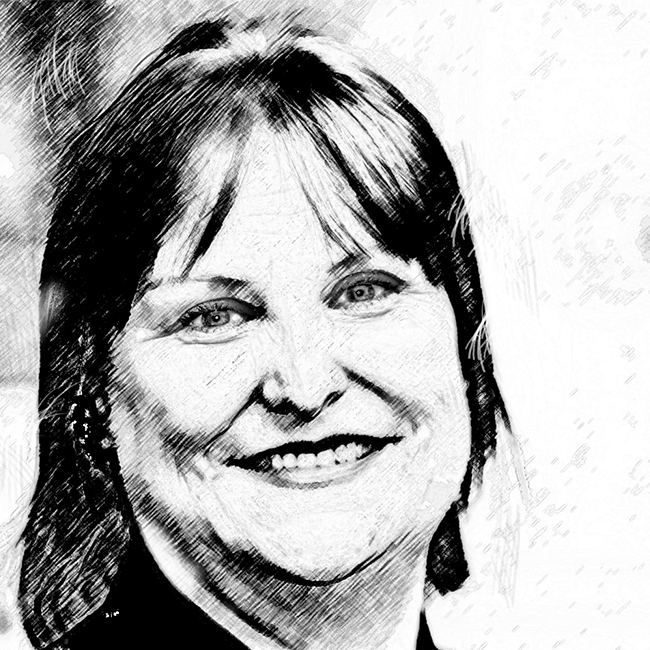
Alison Brittain
CEO, Whitbread
As the highest ranking woman in British banking, Brittain was already a trendsetter, or at least a trailblazer. But when she joined Whitbread — which includes the budget hotel brand Premier Inn, coffee chain Costa Coffee, and other hospitality plays — in January of last year she became one of just two female chief executives running a travel brand included in the FTSE 100 (the other being easyJet’s Carolyn McCall). In her last banking position at Lloyds Banking Group Brittain oversaw the brand’s 2,200 retail banking outlets, which she’s now traded for 2,000 coffee shops at Costa. And while bankers don’t really set any trends we’re interested in following, the people in charge of the coffee we drink to start the day and a place we lay our heads in the evening is certainly interesting. Brittain is focused on expanding the Costa brand (300 stores in China are being planned) and shoring up the hotels and restaurants that make up Whitbread’s hospitality holdings.
Q&As
Bjørn Kjos
CEO, Norwegian Air

Norwegian is different. Long a short-haul European operator, it started flying to the U.S. in 2013, launching with flights between Scandinavia and New York. It has expanded rapidly, adding routes from several European destinations, including London, Stockholm and Paris, to many large U.S. cities.
Skift: Many low-cost airlines fly short-haul routes, but relatively few cross oceans. For a long time, other airlines seemed to think that what works on shorter routes — charging low fares, while also assessing fees for food, seats and checked bags — wouldn’t work for long-haul. Why did you see an opportunity?
Kjos: They do it on the short haul. It works on the short haul. That’s what people want for the short haul. Why shouldn’t it work on the long haul?
Skift: Yet for so long, the conventional wisdom said it couldn’t be done.
Kjos: That’s because you have all these experts. They [said the same thing] when we started out in 2002. They said we would never survive, and they said easyJet and Ryanair were just a flop. That was the saying over there at that time. And now the largest carrier in Europe is Ryanair so experts aren’t always right.
Skift: Could your long- haul model work without the Boeing 787?
Kjos: No. [Before] we set it up, we did the calculation with the [Boeing] 767 and the [Airbus] A340, because those were the ones that were available. The [Airbus] A330s were good, but they didn’t have the range that we needed. We couldn’t get the figures to add up. In order to have low costs, you have to have high utilization. You have to [fly] close to 18 hours [a day] on [each] long-haul aircraft. Needless to say, dividing your costs by 18, you get a lower figure than when divided by 14. We were aiming for 18 hours utilization in order to get low enough costs. Most aircraft couldn’t do it.
Skift: Do you expect you’ll have more low-cost competitors flying trans-Atlantic soon?
Kjos: I hope so. Today,there are way too high prices to fly over the Atlantic. More competition is exactly what happened in the early 2000s when Ryanair and easyJet took over the [European] market. They lowered the prices and ramped up the volume. Now it’s cheap to fly and no one is making more money than Ryanair.
Tastemakers: Aviation

Kenny Jacobs
CMO, Ryanair
When Jacobs joined Ryanair in early 2014 from Moneysupermarket, the discount carrier was known mostly for two things: cheap fares and barebones service. In fact, the company had never had a chief marketing officer because it didn’t need one. The tickets sold themselves, and everything else fell in line. But just about when Jacobs joined, Ryanair realized it had to adopt a slightly softer touch to continue to grow and expand into Europe’s largest airports. Jacobs was put in charge of a new multi-year campaign called “Always Getting Better.” That meant spearheading a new website as well as a mobile app. It also meant pushing the airline to adopt new interiors, and better customer service standards. “I’m very happy with the difference it has made in load factors and in demand, and in the softer measures of what people think of Ryanair,” Jacobs told Skift last year. “We’ve made real change and we’ve made it quickly where it matters: in the customer experience.” At this point, Jacobs has mostly succeeded in changing the brand’s direction. He’s now focused on Ryanair’s next chapter: digital innovation.

Birkir Hólm Guðnason
CMO, Icelandair
Guðnason probably became CEO of Icelandair at the worst possible time. He took over in May 2008 and not long after, his business started collapsing from twin shocks: first a multi-year banking crisis and then a volcano eruption. All businesses in Iceland sustained damage from the country’s economic malaise, but the eruption of Eyjafjallajökull was a problem unique to aviation. It not only led to canceled flights across Europe, but it also hurt Iceland’s tourism industry, with many prospective visitors canceling trips. Still, Iceland recovered — it’s now among the world’s hottest destinations — and so did Icelandair. This is no small feat, considering Icelandair now has a competitor it did not have in 2008: Wow Air, a quirky ultra low-cost carrier. Not all airlines have been able to meet challenges from new entrants, but so far Icelandair has held its own. To compete, it’s gotten a bit quirkier, launching a new “stopover buddy” program in which the airline pairs passengers with a local friend during their Iceland stopover. The buddy might take the passenger hiking on a secret trail or the duo might practice yoga at a secluded hot spring. Guðnason is even a buddy. His specialty? A tour of his hometown and a day of backcountry skiing.

Carolyn McCall
CEO, easyJet
Airline boards often hire insiders for their top jobs, believing a carrier will be best served by having an aviation industry lifer with jet fuel in his or her veins. But in 2010, easyJet took a different approach, hiring McCall even though she had no airline experience. (Her most recent job had been running Guardian Media Group.) But using her outsider status, McCall built the airline into a top-notch business, and between 2010 and 2015, easyJet regularly racked up record profits. That has fallen off of late, mostly for reasons outside of McCall’s control. With Brexit looming and terrorist attacks throughout Europe, it’s not an easy time for European airlines. But easyJet is holding its own, and it remains among the continent’s low-cost leaders. Meanwhile, McCall’s success is noticed. At the end of 2015, she received a damehood and in 2016 she was given France’s highest merit, the Légion d’Honneur. Plus, a bit more than a year ago retailer Marks & Spencer called to ask whether she might want to take over that company. She declined, citing unfinished business at easyJet.
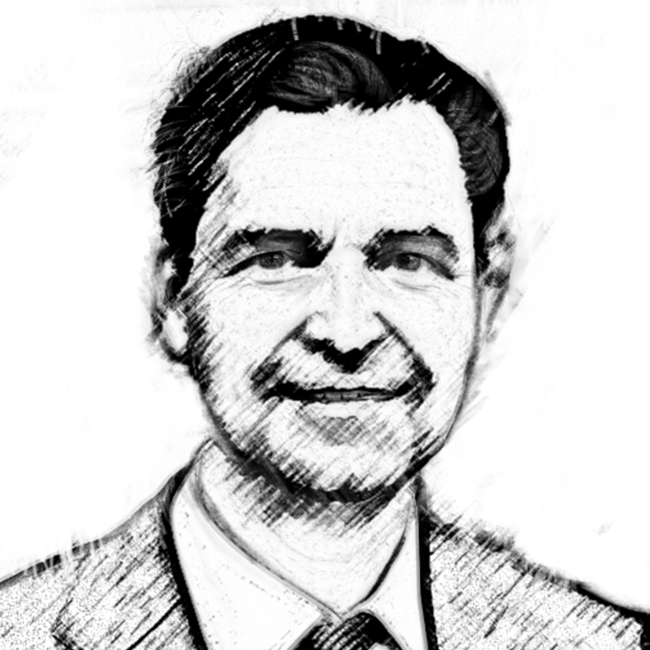
John Holland-Kaye
CEO, London Heathrow Airport
When Holland-Kaye took over as CEO of London Heathrow Airport in 2014, he had one key task: to persuade the country’s decision-makers that the facility needed a third runway. By then, insiders knew that the airport desperately needed more capacity, though expansion was by no means a sure thing. But Holland-Kaye, who was previously Heathrow’s development director, was up for what was a essentially a public relations challenge. He worked to repair relations with residents who lived near the airport and sought to persuade the Airports Commission that Heathrow needed another runway. That runway is now well on its way to becoming a reality, possibly allowing Heathrow to better compete with airports in Paris, Frankfurt, and Amsterdam by the middle of the next decade. But Holland-Kaye will surely be tested in the coming years. Already, there are concerns that more capacity will lead to more pollution, and some still want to block Heathrow’s proposal.
Tastemakers: Media and Entertainment

Grímur Atlason
Founder, Iceland Airwaves
As the meetings and events industry looks for ways of better engaging their audiences, and destinations look for ideas on promoting tourism during down seasons, they’d be well served if they looked to a forty-something punk rocker in Iceland. Atlason, who has run the Iceland Air waves music festival since 2010, draws nearly 10,000 locals and musical tourists to Reykjavik for a four-day celebration the first week of every November. Atlason has long played the role of clever promoter. In the mid 2000s he was mayor of two different small towns in northwest Iceland that called on him for his ability to draw crowds. While Iceland is not lacking crowds these days (it broke another international tourism record in 2016), it has trouble with crowds and tour buses flocking to a few top attractions. But like Austin’s SXSW, Airwaves breaks out of traditional spaces and turns the city into its venue, involving the destination in a bigger way that it would ever be if concerts were kept to concert halls. Atlason carefully curates the programming, mixing Icelandic bands with foreign collaborators, which continues music’s role as Iceland’s leading cultural ambassador.

Melinda Stevens
Editor, Conde Nast Traveller
While we have little faith in the future of glossy consumer travel publications, we’ve always had a very big soft spot for Stevens’ monthly editor’s letter in Conde Nast Traveller. Instead of bragging about a five-star escape to the Maldives, she’ll tell a first-person horror story of traveling with children by low-cost carrier. Stevens honed her voice as a journalist and columnist for UK daily and Sunday newspapers and then as features editor at Tatler magazine. At Traveller, Stevens’ highly personal style of writing gives the glossy a familiar feel, and helps embue the following pages the feeling that they’re written from the perspective of a friend in the know rather than whatever the hotel or holiday PRs are pushing that month. Under Stevens, Traveller sees the world through a London lens that gives the magazine a direction that titles serving whole countries rarely achieve.

Tyler Brûlé
Chairman, Monocle
Brûlé isn’t so much a tastemaker as someone who’s managed to become very successful doing things you’re not supposed to be able to do any more. This year marks the 10th anniversar y of Monocle, the media brand he built on print and paper during a decade when everyone else went digital. In that decade Monocle printed newspapers, opened retail shops, started a 24-hour radio station, published multiple books and, in 2015, launched a line of travel guidebooks. Monocle’s digital presence sits behind a subscriber-only paywall. His impact on travel is significant, from standard editorial coverage to innovative custom-content packages for destinations, airlines, and hotel brands. Monocle’s sister brand Winkreative was responsible for the recent rebranding of Air Canada, and it’s worked closely with Porter Airlines and SWISS, too. Although easily lampooned and widely copied, his jetsetter musings in a weekly Financial Times column reveal a truly global way of thinking about travel that goes beyond airlines and hotels to consider the impact of local transport, diplomacy, and quality of life on the industry.
Q&As
Claus Sendlinger
CEO, Design Hotels
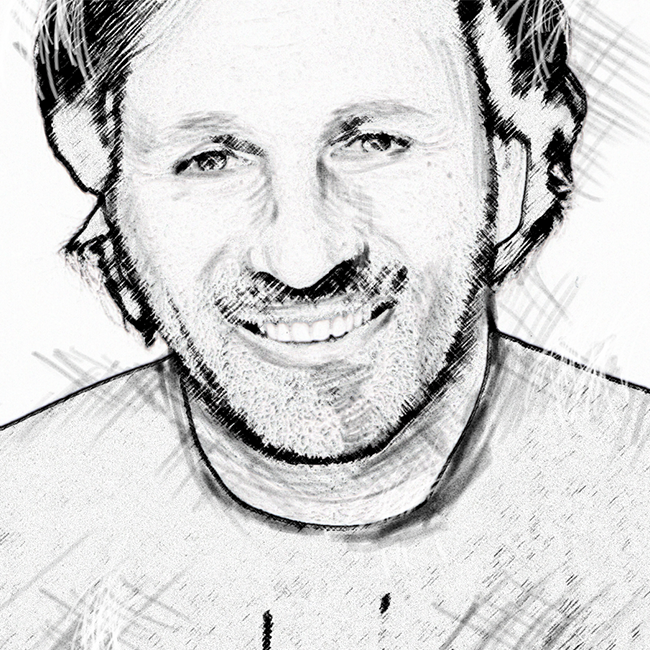
Design Hotels invested heavily in content promoting the member properties with stylish, photo-driven print and online storytelling, especially emphasizing the creative stamp of the hotel owners under the banner of “Made by Originals.”
Skift: In your early career working with DJs in Germany as an event planner and concert promoter, how did that direct your journey toward launching Design Hotels?
Sendlinger: I was always fascinated by youth culture and its influence on fashion, music, art, and pop culture. Seeing the DJs mixing vinyl in the ‘80s during the very beginning of house/techno, my prediction was DJs would be the rock stars of the 21st century. I was close to these guys. And then in 1990 there was a music industry event hosted at The Paramount in New York, which was owned by Ian Schrager and Steve Rubell, and designed by Philippe Starck, that changed everything.
Skift: How did you proceed to define the company’s identity based on the selection of member hotels?
Kjos: Ever y hotel that applied for membership, which had like a red sofa in the lobby, started calling themselves a design hotel. We knew that could become a potential burden to the brand because we firmly believed that good design was just the beginning of every good product and experience in the 21st century. Suddenly we were receiving hundreds of applications every year from hotels that wanted to join, and we could have easily become a 1,000 to 1,200-hotel group very early, but then it would have diluted the portfolio.
Therefore we created this criteria about what a hotel needs to comply with in order to become a member in Design Hotels, because the hotels were saying, “Give us a book of standards about how you choose us.” But it is very subjective because there is always innovation out there, so if we create a standard on what exists, we might exclude the ones who are pushing the boundaries even further. So we decided we were going to create this culture in our organization where everybody who works in our company will learn how to judge a hotel by going through the lobby, listening to the music, talking to the managers at different levels, looking at the way they’re communicating, looking at their web presence, and so on.
Skift: You have promoted the owners of your member hotels by producing a lot of content around the theme of “Made by Originals,” focusing on the owners’ individual histories that informed their hotel designs and development.
Kjos: The common denominator at Design Hotels is really the originality of the creators, of the owners, of the investors. This is continually happening. The word that brings them all together is “Originals.” What everyone is looking for in this experience economy is that unforgettable moment, you know, and that’s why we came up with “Made by Originals.” These are successful people with fantastic taste who have made a big impact in their destination, so even as a global chain, we can speak like a local in Seoul, or a local in Nairobi, or a local in Zurich. We choose these people, these creative directors, really, who have made their neighborhoods into important destinations because of what they do as hoteliers. I think the more luxury becomes accessible to everybody, the more the affluent traveler is searching for the hidden and secret spots that are truly unique and special. They’re searching for something original, which is why we’re well set for the future.















